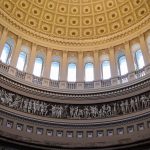Walter Olson
Walter Olson
The Federal Communications Commission (FCC) has launched an investigation of all-news San Francisco radio station KCBS 740 AM over its coverage of a Jan. 26 federal immigration raid in San Jose. Speaking on the “Fox & Friends” show, FCC Chairmen Brendan Carr cited conservative claims that the station, in relaying reports from persons at the scene, had identified the locations and car models of ICE officials while the raid was in progress. Carr said the raid took place in a part of East San Jose “known for violent gang activity.” It is not recorded that any violence occurred during the raid.
The FCC is conducting the investigation under its “public interest” standard, whose meaning, as Brent Skorup noted in this space last month, “is constantly changing and depends entirely on who sits on the commission.” The imprecision is especially damaging here because when it comes to live reporting on police street activity, the public interest can figure on both sides.
In 2015, the International Association of Chiefs of Police published a useful background guide on the role and rights of the media and others who report on police activity. It observes that “individuals have a First Amendment right to record police officers in the performance of their public duties. This right extends to recording of police activity in public or where an individual has a legal right to be present.” Motivation for reporting can include curiosity, personal interests at stake, or strong opinions, even including animus toward police, none of which nullify otherwise applicable First Amendment rights.
That is not to say that rights to report override every prudential factor: for example, police can rightly object to observers’ physical presence when it obstructs or delays them, and they can establish reasonable, marked perimeters around situations and require those reporting to stay behind those lines. » Read More
https://www.cato.org/blog/fcc-investigates-radio-station-over-coverage-immigration-raid






